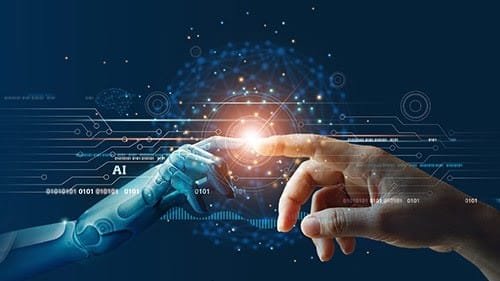
In today’s digital age, Artificial Intelligence (AI) has impacted almost every aspect of our lives. Be it healthcare, education, finance, or industry, AI has brought incredible advancements and efficiency. However, the risks and ethical challenges associated with this technology cannot be ignored. Rafee Tarafda, Chief Technology Officer (CTO) of Infosys, recently made an important statement that “Responsible AI should never be an afterthought, but rather it must become part of our DNA.” This statement greatly underlines the importance of ethics, transparency, and responsibility in the development and use of AI. In this article, we will elaborate on this thought of Rafee Tarafdaar and discuss the importance, challenges, and how responsible AI can be implemented. If we talk about responsible AI then
Responsible AI means that AI systems should be designed, developed and deployed in such a way that they follow ethical standards, respect human rights, and make a positive contribution to society. It includes the following aspects Fairness AI systems should be free from any kind of bias. For example, AI models should not discriminate on the basis of race, gender, or religion. Transparency The decision-making process of AI should be understandable and transparent. This ensures that users can trust the decisions of AI. . Privacy: AI systems should also ensure the security of users’ private information. Accountability: There should be a fixed line of responsibility for AI decisions. If AI makes any mistake, then accountability for its consequences should be clear. Safety: AI systems must be safe and reliable so that they do not cause unintended harm to anyone. If we talk about the importance of responsible AI, then According to Rafi Tarafdar, making AI responsible is not only a moral requirement, but it is also a strategic requirement for businesses and society. The importance of responsible AI increases significantly due to many reasons.
Social trust: Responsible AI systems
gain the trust of people. If AI is fair and transparent, people will be more inclined to adopt this technology. Legal compliance Governments around the world are making new laws to regulate the use of AI. Responsible AI ensures that organizations can comply with these laws. Business stability: Bias or mistakes in AI can also cause financial and reputational losses to organizations. Responsible AI reduces these risks. Promoting innovation Through responsible AI, organizations can innovate in new and ethical ways, which also ensures long-term success. If we talk about the challenges of responsible AI, then there are many challenges in implementing responsible AI, including Data Bias The data used to train AI models may contain bias. This bias can affect the decisions of AI.
Technical complexity: AI systems
often complex, and their decision-making process can be difficult to understand. Ethical dilemmas: Ethical dilemmas associated with the use of AI, such as the use of autonomous weapons or automation of jobs, can pose serious challenges to society. Privacy threat: AI systems require large amounts of data to train, which can threaten the privacy of users. How to make responsible AI a part of DNA? According to Rafi Tarafdar, responsible AI should not be just an additional consideration but should be part of the DNA of organizations and society. There are many steps that can be taken to achieve this Incorporate ethics from the beginning: Ethical standards should be incorporated at the earliest stages of the design and development of AI systems. Diverse and inclusive teams: Teams working on AI projects should be diverse to include different perspectives. Regular audits and evaluations: AI systems should be regularly audited to ensure they are following ethical standards.
Education and awareness
AI developers and users should also be educated about the importance of responsible AI. 5. Government and industry collaboration: Governments and industries should work together to develop standards and guidelines for responsible AI. Conclusion Rafi Tarafdar’s statement that “responsible AI should be part of the DNA” conveys a very important message. Prioritizing ethics and responsibility in the development and use of AI can ensure a better future for our society. It is not only beneficial for businesses but it also helps in creating a safe and just environment for every section of society.
Adopting responsible AI requires collective efforts. It is not just a technical challenge but also a social and ethical responsibility. Let us all together build a future where AI serves humanity and becomes a great asset to society.



